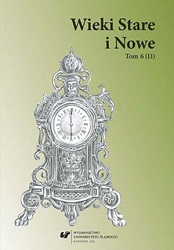Od Eckerta do Janoscha. Historia kosmopolity z Zabrza
From Eckert to Janosch. A Story of a Cosmopolitan from Zabrze
Author(s): Dariusz Walerjański, Angela BajorekSubject(s): History
Published by: Wydawnictwo Uniwersytetu Śląskiego
Summary/Abstract: If it were not due to entangled history of his family and his own, this writer would be known to all his contemporary readers as Horst Eckert alias Janosch. His father — a petty trader, smuggler, keen enthusiast of moonshine and domestic violence — Johann Valentin Eckert (1903—1983), gives name to his first-born son after German Nazi activist, Horst Wessel. In the Third Reich Wessel was recognized sufferer for the national socialism, was shot in 1930 by a Communist Party activist. Janosch was born on March 11th, 1931 to a working class family in a family house at Ciupkaweg Street (later Piekarska Street) in Poremba. The Czarnawka River, flowing near his whereabouts, determined a new dividing line on the plebiscite areas between Poland and Germany from October 1921. Life in industrial city of Hindenburg Oberschlesien dominated by times of national social fights against Jews, communists, priests and Poles; former Silesian insurgents, tough childhood, different cultures interweaving one another, fascination about the latter, and constant dilemmas to face — all stand as the article’s background. Among places which bear imprints of Janosch’s life are: Upper-Silesian Zabrze, vestiges of childhood memoirs beset with Catholicism; German Oldenburg, Bad Zwischenahn, Nordhorn, beginnings of his writing career in Munich; artistic Paris, and Spanish islands of Ibiza, La Gomera and Tenerife. In 2011 Janosch was recognized as an honorary citizen of Zabrze. It serves as a token of appreciation granted to him for the imprints left behind in his family town as well as for his literary achievements. Today Janosch calls himself a cosmopolitan with no particular sense of national identity.
Journal: Wieki Stare i Nowe
- Issue Year: 11/2014
- Issue No: 6
- Page Range: 140-150
- Page Count: 11
- Language: Polish

